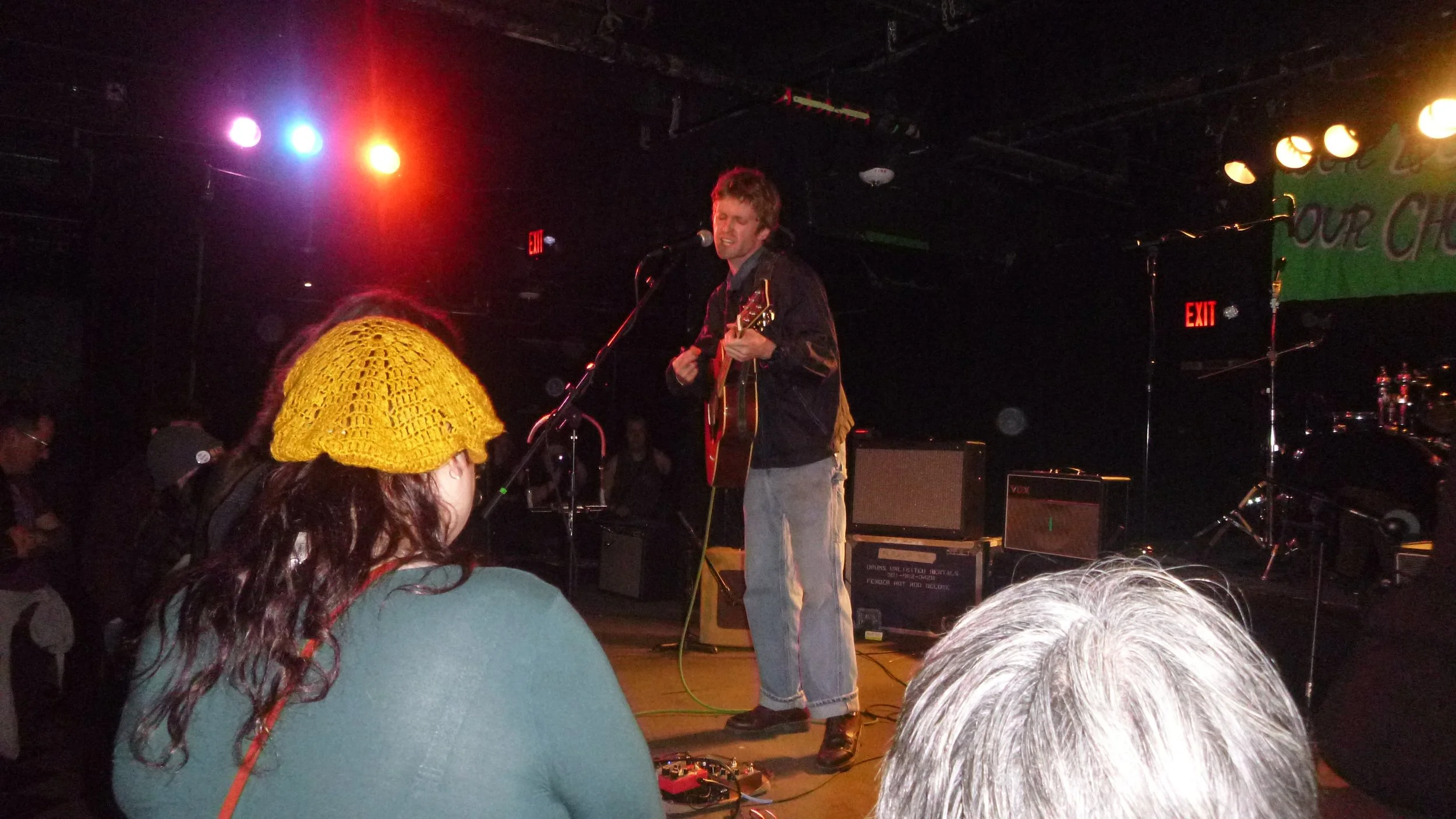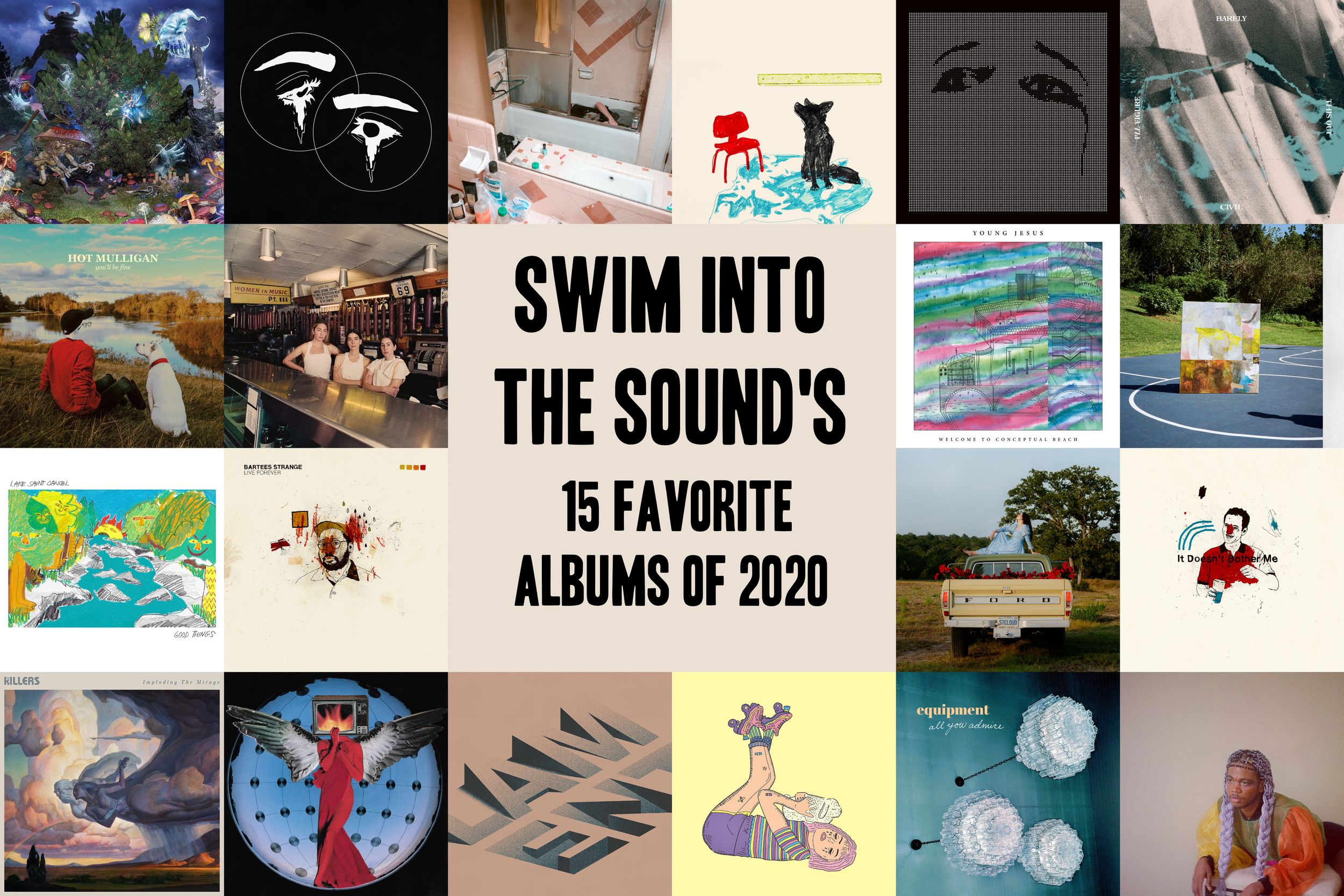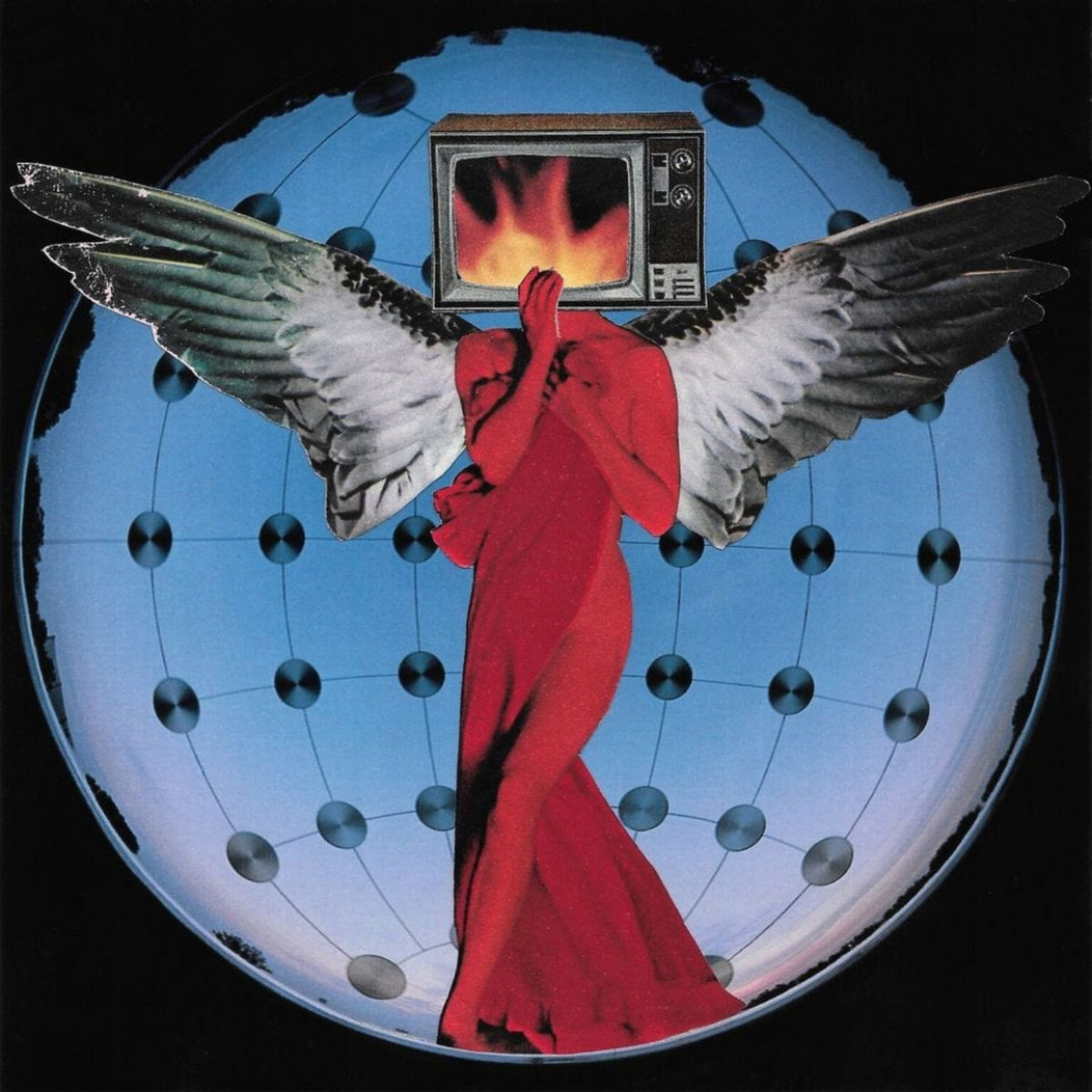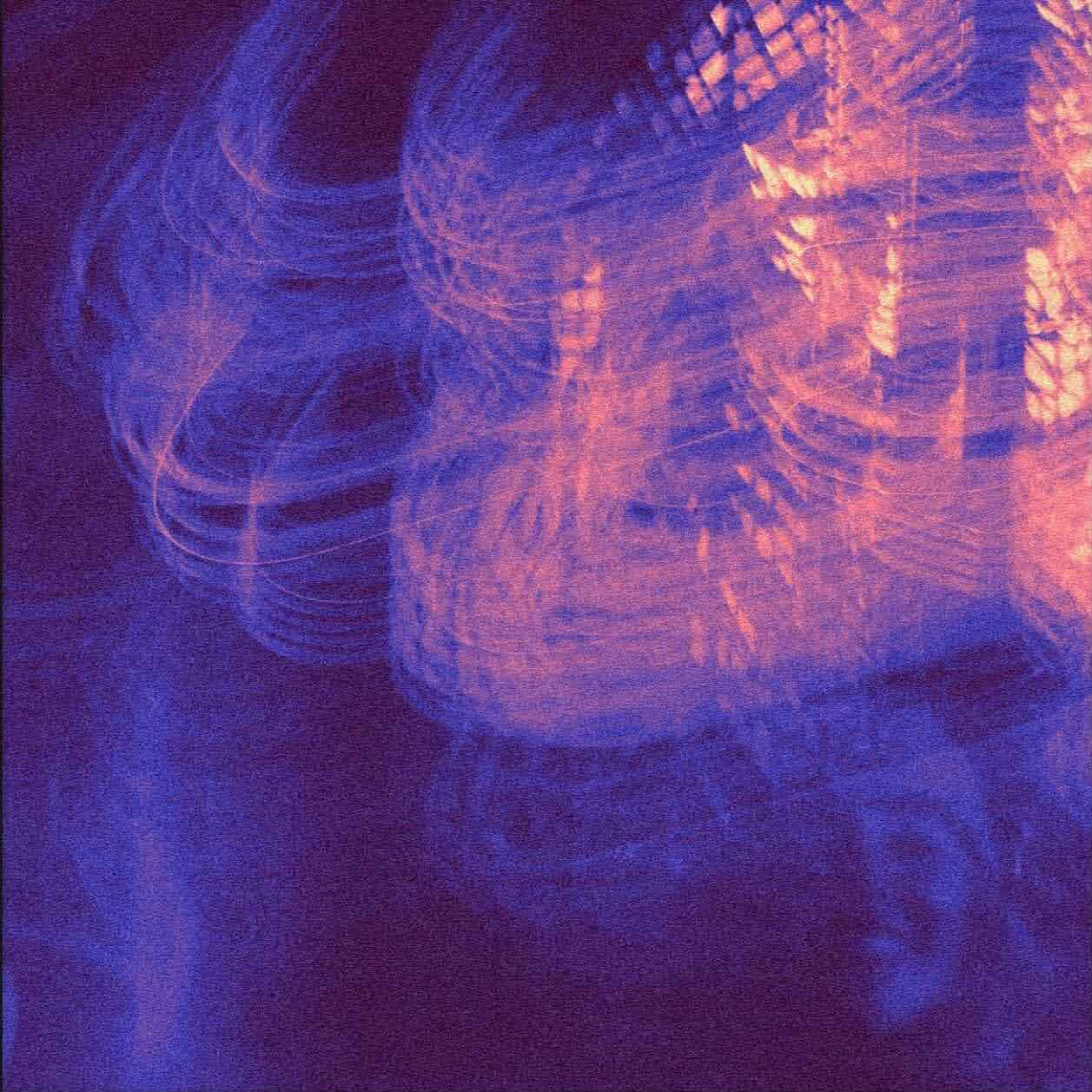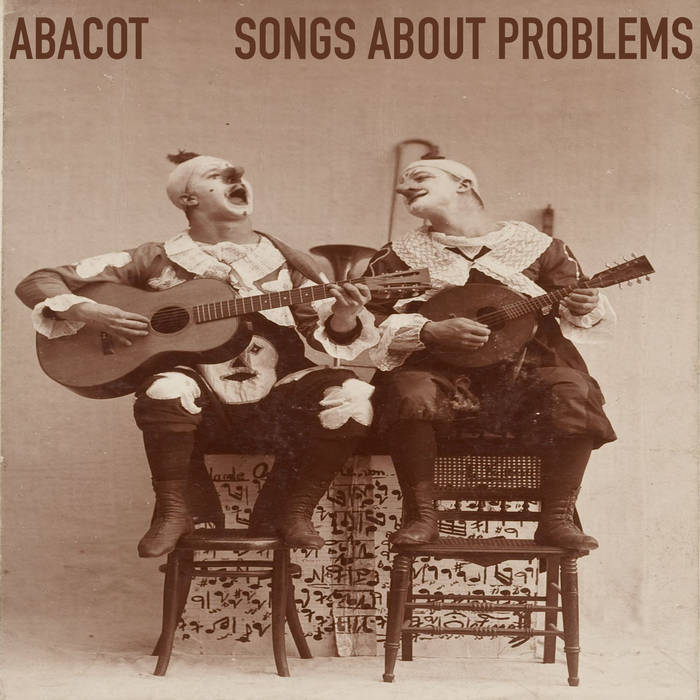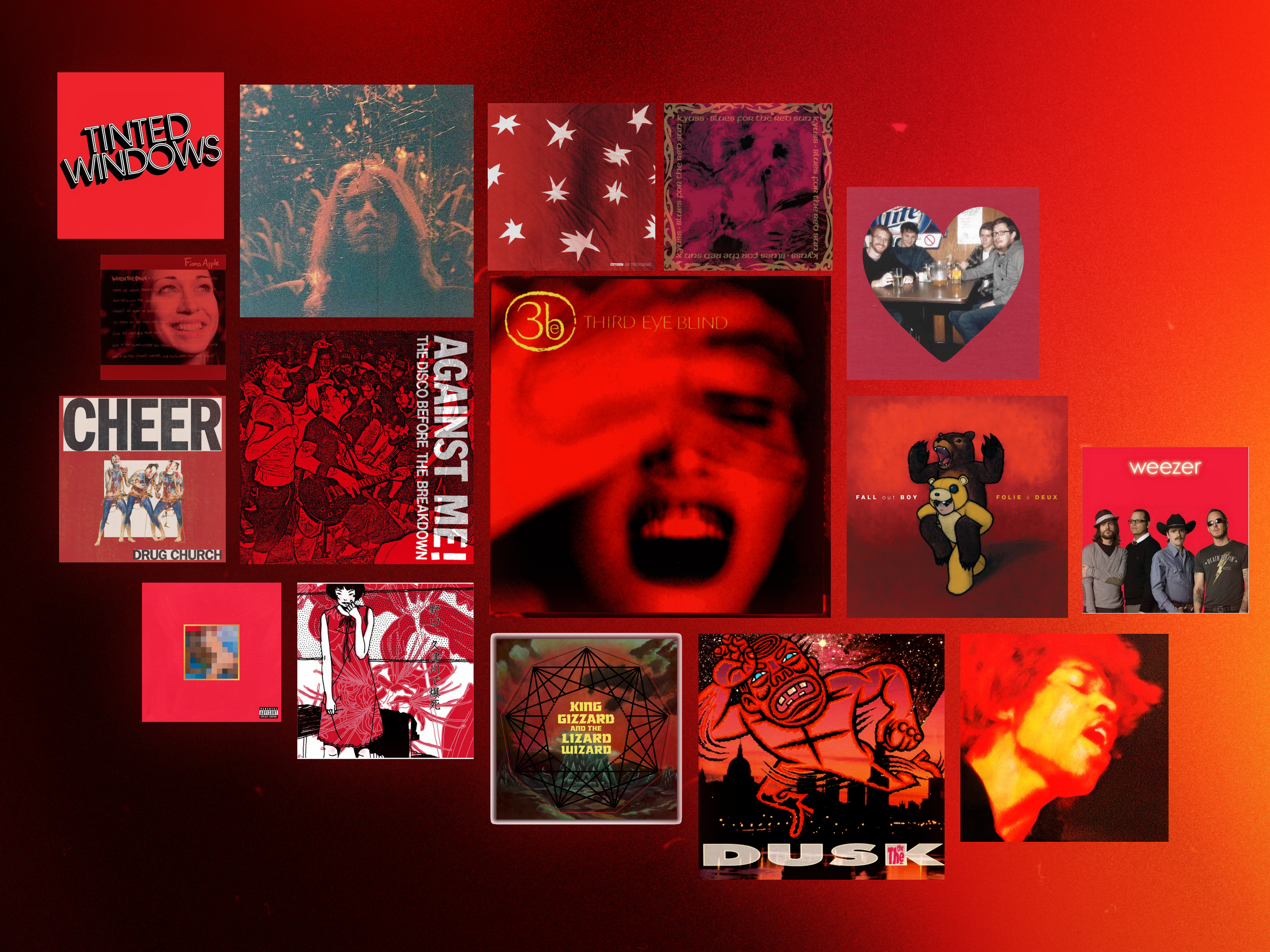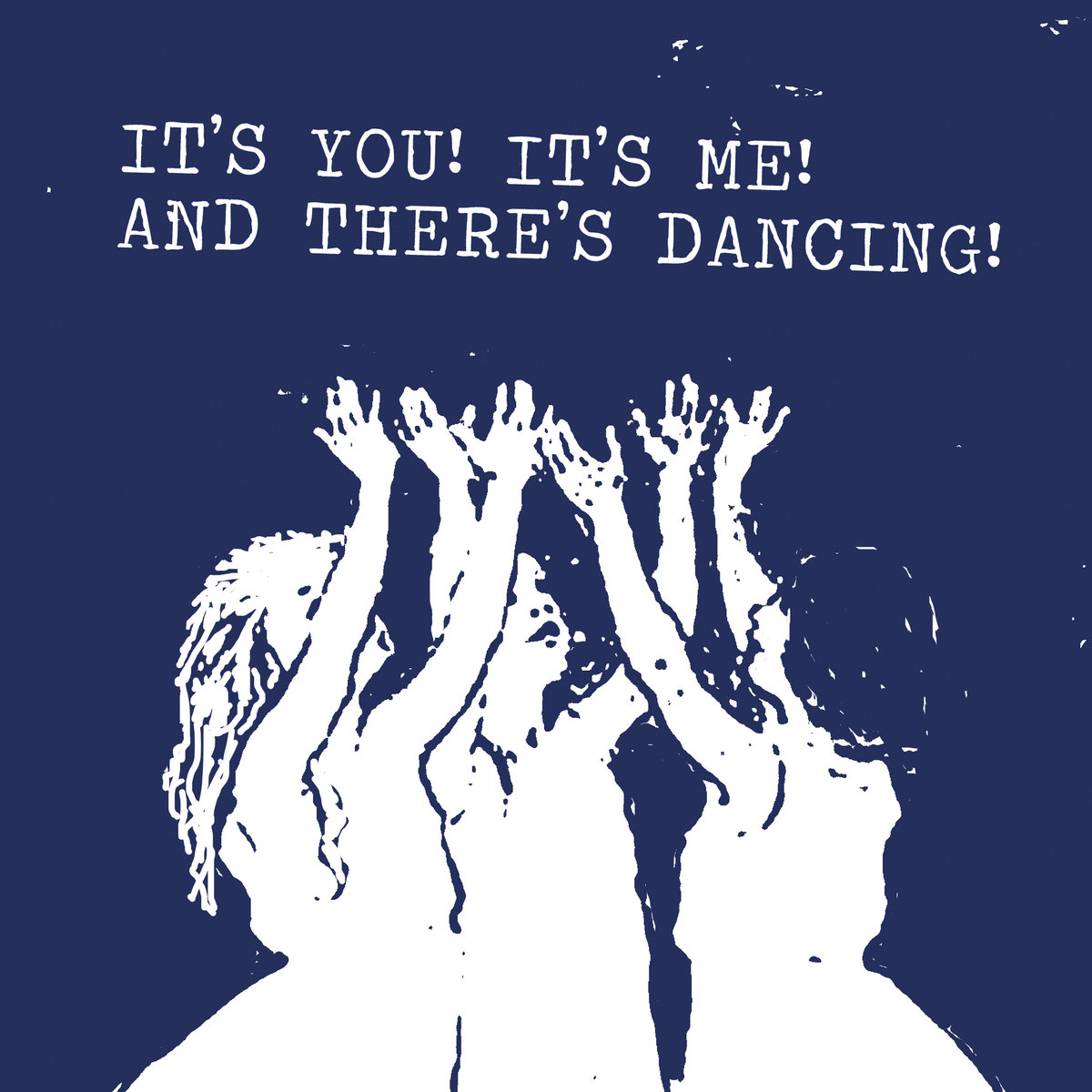Community, Solidarity, and Good Fucking Music: Liberation Weekend Recap
/All photos by Taylor Grimes
Any music festival that starts with a wall of death and a band smashing a guitar is cool as fuck in my book. Any festival where the lineup is comprised of mostly trans and queer musicians is powerful and inspiring. Any festival where the proceeds are going to a good cause and the event revolves around more than just getting shit-faced with your friends while loud music plays… well, that’s about as radical an act you can take part in as a music fan.
Liberation Weekend is a brand new music festival in Washington, D.C., billed as “two days of music and arts for trans liberty.” The festival was organized by punk band Ekko Astral and trans rights advocacy collective Gender Liberation Movement. The festival began as a kernel of an idea that frontwoman Jael Holzman had in the wake of last year’s election and materialized as a sort of Pitchfork Fest for trans rights, with all proceeds going to the Gender Liberation Movement. Featuring a knockout lineup of Certified Swim Favorites™ like Home Is Where, Greg Freeman, Bartees Strange, and Pop Music Fever Dream, the fest took place across two days on Friday, May 30th and Saturday, May 31st at famed D.C. venue Black Cat with afters at the tri-level DC9 Nightclub.
Long story short, Liberation Weekend was two days of incredible music, infectious energy, and communal support. I was on-site (alongside esteemed member of the Swim Team, Caro Alt) from start to finish, taking in a collective 20 hours of music, 22 different sets, and an infinite number of fits, smiling faces, and jumbo slices. We captured at least a little bit of every set on Instagram, preserved forever as a Highlight for your viewing pleasure, but also nabbed some pics on our trusty digi cam. Read on to see what the inaugural version of the festival was like.
Day 0: Solid State Books presents Niko Stratis' "The Dad Rock That Made Me A Woman"
On Thursday, May 29th, before a single note of music was played, Black Cat hosted a reading and Q&A with Niko Stratis that served something of an unofficial kickoff to Liberation Weekend. Stratis’ recently released book, The Dad Rock That Made Me A Woman, is one of my favorites that I’ve read in a long while and felt so immediately revelatory that a handful of the Swim Team writers decided to start a book club just so we could all talk about it.
An absolute masterwork in music writing, the book is a memoir-in-essays on transness, labor, music, and self-realization. Each chapter of the book is centered around a specific “dad rock” song, with Niko using songs by Wilco, The Replacements, Sheryl Crow, and more as jumping-off points to discuss transitioning and her eventual journey to sobriety. Throughout the book, I found myself awestruck by how well Stratis jumps back and forth between more traditional music writing and vivid personal stories, often dovetailing the two with an energy that enraptured and inspired me.
After Niko read a bit from her essay about The Wallflowers’ “One Headlight,” she and emcee Rax King (a D.C. local) played a round of “Dad Rock or Not,” which is precisely what it sounds like, as the pair ran through a series of bands for Stratis to determine whether they classify as dad rock or not. This laddered up to a key point within the book outlining the difference between a “father” and a “dad,” with Niko ultimately surmising that “A dad is somebody you remember.”
The night’s discussions also included a tangent on chips and bagels, thoughts on identity through labor, a condemnation of “coolness,” and advice from Niko that “if you’re going to get tattoos, some of them have to be stupid.” Stratis also had some trenchant analogies about how coming out as trans doesn’t fix everything, explaining it as being more like a circuit breaker where nothing’s labeled. On some level, it’s nice to have a fresh start, but you still have to put in the work to figure out what everything does and who you are trying to be. My favorite quote of the night came when Niko was discussing how to discover new music and said, “If you’re ever at a record store and there’s a guy working there who looks too stoned to be alive, ask him what he’s listening to, ‘cause it’s gonna be good.”
Day 1: Emo Music, Smashed Guitars, and a Flood Warning
It’s a muggy Friday in DC, and I arrive at Black Cat an hour before doors to bask in the pre-show calm. The lights are low, and the black and white tile floor is already cast in swirling green laser lights. To the left is a bar hawking a combo of whiskey and Narragansett Lager; to the right is a bank of pinball machines ranging from licensed tables like The Big Lebowski and Johnny Mnemonic to classics like Centaur and The Machine: Bride of Pin-Bot. Also to the right were tables for the Gender Liberation Movement, Transa, and the Trans Music Archive.
Before the day began in earnest, Ekko Astral frontwoman Jael Holzman took the stage to introduce the festival and explain its inception. “Months ago, we had a dream to raise money for trans people instead of against them,” she explained to applause from the already half-full room. Holzman went on to introduce the first band of the first-ever Liberation Weekend…
Pop Music Fever Dream
A brilliantly chaotic no-wave band from Brooklyn, Pop Music Fever Dream kicked off Liberation Weekend with lamentations and bad vibes in the best possible way. Guitarist and lead singer Tim Seeberger wailed into the mic as bassist Carmen Castillo glared into the crowd, the attendees already throwing themselves into each other, an instant reminder that, after all, D.C.’s hardcore scene helped invent slam dancing. The fact that there was moshing for their first song signaled a strong start to the proceedings. At one point, Seeberger unfurled the mic cable and wandered to the back of the room, parting the crowd for a wall of death. “The fight doesn’t stop tonight, but i in t’s fun to celebrate,” they explained in between songs. After 30 minutes of primal howls crawling around the stage, PMFD ended the set by smashing a guitar, with shards of the sunburst Jaguar flying into the rapt audience. Helluva way to start things off. Read Lillian Webber’s interview with Pop Music Fever Dream here.
Greg Freeman
Next up was Greg Freeman, a Vermont-based alt-country indie rocker whose 2022 debut, I Looked Out, has been a staple of my musical diet over the last few years. Freeman was playing a solo set, just him, a guitar, and a harmonica, giving effortless folk hero energy as he played through hits from his first LP as well as his upcoming sophomore effort, Burnover. Earlier that same day, he released “Curtain,” a piano-packed barroom brawler that the audience was lucky enough to see in a raw, stripped-down form. Singing through clenched teeth, songs like “Come and Change My Body” took on a feeling of renewed meaning in a room full of people expressing their gender in a genuine and free way. Read Taylor’s write-up of “Curtains” here.
Pretty Bitter
After the no-wave freakout of PMFD and the earnest folk stylings of Greg Freeman, D.C.’s own Pretty Bitter swept to the stage, bringing big dance party energy. Running through older material as well as songs from their upcoming Tiny Engines debut, Pleaser, the five-piece strutted their stuff with confidence and momentum that got the crowd grooving in turn. Frontperson Mel Bleker commandeered the mic while Kira Campbell shredded guitar solos and Ekko Astral’s Miri Tyler and Liam Hughes held down the bass and synth, respectively. Behind them, drummer Jason Haze battered his kit, twirled his sticks, and stood up to hammer his loudest solos. To quote my friend Jacqueline Codiga, “The drummer doesn’t have one song where he needs to be doing all that, but I’m glad he is.” The whole set felt like dancing around your room on a random weeknight after finding out your crush likes you back. Luckily, we only have to wait till July to hear the band’s sophomore album.
The Ophelias
Not to say the bands before this weren’t getting fits off, but when The Ophelias took the stage in floor-length floral dresses, white platform heels, and long, flowing hair, it was clear a new bar had been set. Reveling in the beauty of their recently released Spring Grove, the Cincy five-piece enraptured the crowd with a set of lush, violin-framed indie rock. Addressing the world at large, then the thrust of the festival, lead vocalist Spencer Peppet laid out, “This shit sucks… but this is cool,” which was met with applause from the ravenous audience.
Pinkshift
I’ve been lucky enough to catch Pinkshift a couple of times over the last few years, and each time, I swear they get faster, tighter, and even more ferocious than the last. The Baltimore punk band brought immediate anger and urgency to their almost-hometown set, condemning white supremacy before ripping into “ONE NATION,” a song that got the entire front of the room jumping. Leader singer Ashrita Kumar is a force of nature, thrashing across the stage while their voice vaults from heavy growls to soaring high notes. The band and crowd fed off each other’s energy as vicious circle pits seemed to fuel the band’s bone-snapping nu-metal-esque breakdowns. Read Taylor’s write-up on Pinkshift’s breakthrough “i’m gonna tell my therapist on you” here.
Vinyl Raffle + Raquel Willis of Gender Liberation Movement
Before Night One headliners Home Is Where took the stage, Jael and Miri handed out the first batch of raffled vinyl courtesy of Topshelf Records, including the likes of Weatherday, Really From, plus some exclusive test presses. One by one, winners were called up to the stage to collect their wax, then the pair handed the stage over to Raquel Willis of Gender Liberation Movement, who had some choice words to say on the whole affair. “Even if you had a hard day, a hard week, a hard life… bitch you are here.” She went on to explain how apt this pairing is, stating, “It makes perfect sense that this festival centers around punk rock. Music and creation and punk [have] always been ours.” Willis continued with inspiring vamping about how we have to show up for everybody, shouting out the queer freaks and the gender fuckers. She ended on a simple note, stating to the packed crowd, “We deserve liberation forever.”
Home Is Where
In the months leading up to Liberation Weekend, there was one band everyone in D.C. was talking about. Conversations about tickets and lineups circled around one thing — “I mean, Home is Where is headlining.” When the Floridian emo group dropped I Became Birds in 2021, the album was an immediate shock to the system–rickety, electrifying, and invigorating for its entire 19-minute runtime. Two years later, the group followed it up with the even more full-throated the whaler, a tense, loving, and grotesque record about getting used to things getting worse. This year, the group pushed out even further with Hunting Season, a country-fried take on their sound that doubles as a love letter to their home state after members were forced to relocate in the wake of increasingly aggressive anti-trans legislation. Read Wes Cochran’s review of Hunting Season here.
Donning Dylan-like sunglasses and rocking the second harmonica of the night, lead singer Bea MacDonald explained these stakes outright to the packed audience, “Tilley and I had to leave Florida, and we’re homesick.” The group played through high points of their recent LP, including “migration patterns,” “milk & diesel,” and “shenandoah,” all of which were met with a thrashing crowd that emphatically screamed along to every word. I felt second-hand euphoria hearing “Oh, what a strange salvation / bong water transubstantiation” live. In one of the funnier bits of stage patter, Bea introed, “This might be the closest to the Capitol Building that you’re allowed to sing these words” before throwing to “the scientific classification of stingrays.”
Upon completing their set, the crowd was still ravenous for more, spurring a genuine encore from the group that saw Bea and Tilley take the stage, just the two of them, for a stripped-down rendition of “roll tide” off Hunting Season. It was a joyous way to end the first leg of the day, but not the whole day, because there were still afters, so off to DC9 we went.
Interstitial Migration
Situationally, Black Cat sits in the middle of 14th Street, a relic of a different time in D.C.’s music geography that’s now locked in by a couple of fratty bars, a beer garden that doesn’t sell hard ciders, and a Brooklinen. However, up five blocks and through a couple of neighborhoods, DC9 stands in a long line of bars and clubs, catty corner to the historic 9:30 Club and its subsidiary, The Atlantis. Groups of festival-goers walked on the red brick sidewalks from one venue to the next as the sky threatened to open again. Everyone was replaying what happened during Home is Where’s whirlwind set while keeping up a brisk pace to make it to Perennial.
– Caro Alt
Perennial
Because Home Is Where went a little over and it took a while to say goodbye to all our friends at Black Cat, we showed up a few songs into Perennial’s set, but the Connecticut modernist punk trio had already whipped the room into a frenzy. We walked in during the raucous “Up-tight,” which the group blows out into a call-and-response jam, walking into the crowd as vocalists Chelsey and Chad alternate lyrics “in the middle of the night / oh yeah, alright, up-tight.” The trio worked the refrain down to a whisper, and the crowd was more than happy to oblige, chanting along to every word until the group brought the guitars back out and turned things into an all-out punk party. Dressed in matching horizontal striped shirts, Perennial’s set was contagious and pure rock and fuckin’ roll.
ZORA
Introduced as “the transsexual menace,” ZORA took the stage as an indietronica duo with live drums and braggadocious hip-hop bars. After shouting out her hometown of Minneapolis, Minnesota, ZORA led a chant of “Fuck Target” after the company rolled back its DEI initiatives earlier this year and pulled their support for local pride events. Playing plenty of songs off her recent Get Better Records releases Z D A Y and BELLAdonna, ZORA offered a fun palate cleanser to the otherwise rock-heavy aftershow.
Um, Jennifer?
I was lucky enough to catch Um, Jennifer? a week prior, playing The Mercury Lounge with Eph See and Deadbeat Girl, so I was fortunate in that I knew what to expect. That is to say, a triumphant set of rock music helmed by Eli Scarpati and Fig Regan, who playfully trade deliveries between vibrant shades of indie rock. While Eli brings a buoyant, classic rock approach to his songs, Fig impresses with slightly headier songwriting that at times feels like a mix between Black Country, New Road and under-appreciated defunct Detroit prog-punk band Mover Shaker. Together, the pair is backed by Grayson Ellis (of Twinflame) on drums and Carmen Castillo (of Pop Music Fever Dream) on bass. Together, the four churned out effortlessly charismatic pop-rock bangers to a ravenous 1 am crowd.
With a recently released self-titled full-length behind them, the group rocked through a set of songs that spoke directly to transition and gender dysphoria/euphoria. Highlights included the Blondie-coded “Went On T” and “Old Grimes,” a surfy number with a soaring chorus about listening to Grimes before she did all that other stuff. There were times when Eli was flying across the stage, jumping from the bass drum, shirtless, performing with such zeal that I was reminded of a young Bruce Springsteen. Even the on-album interlude “Jennifer’s Dungeon” took on a cathartic new life when performed live, with the entire crowd finding release in the repeated wail of “I shaved my face for you, baby!” The night ended with “Cut Me Open,” a jumpy rocker that has been one of my favorite songs of the year for two years running. Read Brad Walker’s review of The Girl Class EP here.
Interlude: Merch Booths, Organizing, and Wishlists
By the time we emerged from DC9 a little after 2 in the morning, we were met with an absolute deluge of rain. We checked the weather app to learn that D.C. was experiencing both a flood and a tornado warning, almost as if Mother Nature was just as fired up from the eight hours of music we had just taken in. We ran through the streets and piled into a Lyft back to our digs in Adams Morgan, then proceeded to saty up until 4 am, wired from the day’s events.
This midpoint seems like a good spot to show off some of the beautiful merch and organizations that were tabling the fest. There was a little something for everyone: cool shirts and CDs, smut and stickers, zines, narcan, test strips, and DIY hormone guides, the sense of community stemming from the fest was reflected even in these booths.
















While I’m breaking timeline chronology, I’d also like to use this space to discuss my personal wishlist for a potential second iteration of Liberation Weekend. First off, my mind goes to Jeff Rosenstock and PUP, two bands that Ekko is about to tour with this fall that seem like prime headliner suspects for an event like this. I also think Mannequin Pussy and Lambrini Girls would bring a hard-nosed punk edge that the festival seems to bend toward. Because I’m a Portland Boy, I also have to rep Alien Boy, whose loud-ass guitar rock tackles something universal in the queer experience. Just to round things out with some emo music, I think Snowing, Ogbert The Nerd, Swiss Army Wife, or See Through Person could all provide prime mid-day sets that would keep the energy high. Okay, enough daydreaming, back to reality.
Day 2: Local Legends, TRANSA Showcase, and Ekko Fucking Astral
Miri Tyler
Day two of Liberation Weekend started with Miri Tyler kicking off the Locals set at DC9. You can’t talk about DIY music in D.C. without bringing up Miri Tyler. Not only did she play in three sets across the 22-set weekend (all different instruments, I may add: bass for Pretty Bitter, drums for Ekko Astral, and guitar/vocals for her own set), but outside of the festival, you can find her at practically every gig and show. The first time I saw Tyler wasn’t actually onstage, but opening the mosh pit at a Bacchae show several years back – her love of music and D.C. is infectious, and the crowd she was playing to at 2:30 pm was giving her that love right back.
Sonically, Tyler’s project is jangly and a bit groovy – the song “Land of the Loaded Gun” boasts a phenomenal bassline, held down by Kira Campbell, which acts as the song’s center of gravity, much like a Yo La Tengo song. During the set, the trio played a new song with a fucked-up groove, then transitioned into an older track with more of an emo beat. Tyler wears her heart on her sleeve, and that earnestness is what this festival thrives on.
– Caro Alt
Fun aside. Just a short beat after Miri’s set ended, one of the vendors from the back of DC9 shouted, “If anyone wants gay porn, I have some!” Then amending their proclamation with “Trans porn!” What a beautiful festival.
Berra
I always find it kind of embarrassing when there’s a local act I haven’t seen three times yet, let alone haven’t seen once, but I had never seen Berra live until this weekend. Under the blue lights of DC9’s corner-set stage, Berra’s Roba Djalleta stood in the spotlight and began her dreamy set. The weekend happened to line up with the release of the band’s latest EP, Lover’s Virginia, which came out the previous Friday, meaning there was a plethora to celebrate. The crowd bounced along to poppier songs like “Guys” and swayed to misty tracks like “For Not You.” Djalleta’s velvety voice and the shiny band oscillated between the emo stylings of the Midwest and bedroom pop contemporaries like Beach Bunny. All together, it was a starry set, and I hope to catch Berra again soon. If any D.C. bookers are reading this, book Berra.
– Caro Alt
Massie
Right as Massie kicked their set off with an Interpol-ass riff, Kira Campbell came over my shoulder and whispered, “This band is about to melt faces,” and damn was she right. You know in cartoons when a band plays so loud that the amps start smoking and the volume dial pops off? That’s Massie. The group is a thrashy power-pop project shared between guitarist Emily Yaremchuk and drummer Sam Collings. Collings’ drums sit at the heartbeat of the band, thumping through Yaremchuk’s feedback and fuzz. Sonically, they lean into a bit of gaze and get a little Gladie. No matter what or where I see them – a library, a basketball game, or at DC9 – they always feel like someone lit a firework and threw it into the air.
– Caro Alt
Pinky Lemon
You can’t help but feel electric when Pinky Lemon performs. About as synonymous with The D.C. DIY Sound as anyone can get, Pinky Lemon normally sprawls across the stage with five members; however, for this set, they opted for a stripped-down version of their synthgaze. The last time I saw Pinky Lemon live, they were participating in a tournament called Mosh Madness, in which local bands soundtracked a series of 3-on-3 basketball games made up of local musicians. Their ominous yet dancy sound reverberated around the auditorium then as it did at DC9. While the setting was incredibly different for Liberation Weekend, the performance was just as in-your-face; they even covered “Love Buzz” with Miri Tyler. This set was definitely Pinky Heaven, not Hell.
– Caro Alt
Faith/Void
Back at Black Cat, I walked into Faith/Void’s set right as the NY rock trio were ripping into a cover of Mclusky’s “Day Of The Deadringers,” which brought me back to life. Their whole set was proper shouty down-and-dirty punk goodness with an undercurrent of jilted Gen X energy. The band’s bio on Instagram reads, “suckin dongs and smokin bongs,” and I’m happy to report that’s the exact kind of energy you can expect from a Faith/Void set.
Big Girl




After reading Katie’s write-up on Big Girl earlier this year, I thought I knew what to expect from the red-hued indie rockers, but turns out taking in this band’s show firsthand is something else entirely. The set began with all four members putting their hands together, then bandleader Kaitlin Pelkey proceeded to lie on the ground and writhe, slowly coming to life as the rest of the band gradually cranked up a swell of noise. Dressed in red tights and a sheer red top wrapped in a protective suit jacket, Pelkey is the ideal frontperson, equal parts iconic, theatrical, intimidating, and captivating. After shredding for one song as a four-piece, Pelkey shed their guitar and began to strut the stage, vamping, tambourine in hand while promising that select members of the audience were going to get that “biiiiiiig promotion,” lulling us in with the promise of “healthcare” and “everything we ever wanted.” The group proceeded to play through a selection of songs off their recently released DYE EP, and within minutes of their set ending, I was already looking forward to the next time I would be blessed enough to catch Big Girl again. Read Katie Hayes’ profile on Big Girl here.
Ted Leo
Ted Leo is a staple in D.C. music in the same way that St. Stephens is a staple of D.C. DIY venues, in the way that Smash! Records is a staple in D.C. record shops and the way that Fugazi is a staple in knowing what D.C. post-hardcore is in the first place (come on, it was gonna get mentioned at some point). Last year, Ted Leo (and his Pharmacists) took Ekko Astral on tour to celebrate the 20th anniversary of his anti-war power pop album, Shake the Sheets; now he’s returning to support the Gender Liberation Movement. While he was Pharmacist-less, he still brought the house down with his stripped-down punk songs and blood-hungry bite. If everything went according to plan, this weekend was already set to be historic for D.C. punk music, and Ted Leo’s presence tied the whole thing to the city’s storied lineage.
– Caro Alt
Editor’s Note: At this point, the battery on my camera died, so the rest of these photos are just from my iPhone, sorry.
Downtown Boys
One of the weekend’s most forceful sets, Downtown Boys brought raging punky vocals with a message to Black Cat’s stage. Led by Victoria Ruiz’s compelling, compassionate wail, the group ripped and raged through crowd favorites off Full Communism and Cost of Living, interspersing their set by reading letters from Palestinians and reminding the audience that we need to “do this collectively.” There were crowd-churning two-step drum beats, skank-worthy sax solos, and, in a telling move of solidarity, the mic was pointed into the crowd for the first time all weekend as fans screamed the band’s words right back to them.
Speedy Ortiz
Kicking their set off with immediate distortion and a heavy-as-shit guitar riff, Massachusetts indie rockers Speedy Ortiz brought their indelible pop-rock tunes to Liberation Weekend in style. If The Ophelias got the superlative for Best Dressed of Day One, Speedy Ortiz had it on lock for the second day. Bandleader Sadie Dupuis was rocking a sparkly rainbow dress with a hem like confetti, singing into a bright pink and blue Fisher-Price-looking mic while playing a green guitar with a tiger-stripe pickguard. Talk about fuckin’ style. At one point, in celebration of Gemini season, Sadie invited Ted Leo and members of Downtown Boys back on stage for a round of tequila shots. To close out their set, the group played “Brace Thee” off their most recent LP, Rabbit Rabbit, and brought the house down as bassist Audrey Zee Whitesides screamed the repeating final line “I’m fine!” sounding anything but.
After Speedy Ortiz’s set, it was time for the Transa Showcase featuring artists from last year’s staggering TRANSA compilation. Organized by the music production non-profit Red Hot, the compilation is an eight-part spiritual journey across 46 songs that brings together over 100 artists with a focus on some of the most daring, imaginative, and exciting trans and non-binary musicians working today.
Bartees Strange
While he’s mostly known for sturdy and eclectic indie rock, Bartees Strange’s solo set found the artist with nothing more than an acoustic guitar and a setlist written on his hand. It was a more solemn affair than the day had been up to this point; it only took a couple of songs for Bartees to transfix the entire room with his killer voice. He played through heaters like “Sober” and “Baltimore” off his recent LP but also dipped back into fan favorites like “Heavy Heart,” “Mustang,” and “Boomer.” With a tasteful amount of reverb on his guitar, the set was an absolute showcase for the breathtaking quality of his voice, even when his songs are stripped of all ornamentation and flashiness. At one point, after discussing how important it is to show up for friends, Strange remarked on the festival, “Jael hit me up about this festival, and I was like ‘yeah if you can do it,’ and look what happens when people come together and try something new.”
Asher White
Asher White was easily one of my biggest surprises of the weekend, a classic case of going in totally blind and coming out an instant fan. Part emo noodling, part indie rock dance party, Asher White is a band that truly contains multitudes. At one point, the group wound from a gentle, finger-plucked slow number to a sludgy stoner rock passage, then into a jumpy pop-punk blast, and finally slowed things down again. There were tight instrumental passages, fun vocals, and some of the best stage banter I’d heard all fest. At one point, White lobbed a softball over home plate, asking the crowd, “Anyone here transgender?” which was met with unanimous applause and cheers. At another point, she explained, “This is my first time in DC, and I think it’s skewed me because I’ve only talked to trans people.” Any band that can have this much fun on stage while rocking this hard is ace in my book.
L'Rain
After the hometown heroics of Bartees Strange and the rambunctiously high-energy Asher White, L’Rain opted to close the weekend out on a beautiful reflection. For half an hour, L’Rain sat alone onstage, equipped with just a mic and soundboard, and mixed a drone sound using archival samples from the NYC Trans Oral History Project. The set slowed the room down and magnetically pulled people towards the stage to hear the stories over the speakers. The crowd that had been frantically moshing just minutes ago was now sitting quietly, surrounding L’Rain as she crafted a spiral of sounds, dialogue, and looped noises. Some audiences treated the set as a meditation, closing their eyes and opening themselves up to the music on a deeper level. Looking around, some groups were deep in conversation, while others were engrossed in listening or wrapped up in each other's embrace. It was a beautiful scene.
Occasionally, L’Rain would lift the mic to her mouth just to breathe or hum lightly, adding her own element of live humanity to the soundscape. Even though I was watching most of the set from the side of the stage, it was unclear whether L’Rain was even vocalizing every time she brought the mic to her mouth. At one point, she seemed to raise the mic up and just smiled into it. Again, I couldn’t make out whether she was actively adding something new to the ambient swirl, but maybe capturing that smile in the moment was enough.
Pure Adult
The floor of the second story of DC9 shakes. While it’s not noticeable for every set, if the crowd starts moving fast enough, the whole room will start to move too. Over the years, I’ve typically felt the shake towards the end of the night in the final thrashes of the crowd as artists play their biggest hits. Pure Adult’s unruly set got the floor swaying in seconds. The room’s pink and blue lights have shifted to a sinister red as the night rapidly turned into a sweaty, jumpy moshfest. Frontman Jeremy Snyder seemed to take infinite glee in this reception, conducting the crowd like a demonic Paul Giamatti – complete with a grey mop of hair, beautiful stache, and a sport jacket – as he gesticulated, fist-pumped, and shouted repetitions into the crowd. Occasionally, he’d pass vocal duty off to keyboardist Bianca Abarca, who would throw the crowd into an even further rage with pit-spurring hardcore vocals. Behind them, the rhythm section was held together with a tribal thrumming, always providing a reliable groove for the group to fall back on. The entire set was hedonistic and hammy, with many beautiful moments where the entire crowd was moving as one, yelping in joy. The stage was set for Ekko Astral.
Ekko Astral & Friends
On the ground, the topic of Ekko Astral’s set was hotly discussed throughout the weekend. There were rumors about special guests, predictions for the set list, and anecdotes about the last time people had seen the band. The countdown had been on since the moment the festival was announced.
The final seconds ticked down, and Ekko Astral emerged from the crowd–frontwoman Jael Holzman on bass, Liam Hughes plugging in his guitar, and Miri Tyler settling behind the drums. There was a deep breath, and then the band launched their set into orbit with a cover of SOPHIE’s “JUST LIKE WE NEVER SAID GOODBYE.”
The pandemic is often cited by D.C. locals as a changing point in the city’s rock scene. Bands broke up, venues closed, and people left. When shows started again, there was a kind of rebirth and a longing for closeness. This is where Ekko Astral comes in. For years, Ekko was kind of D.C.’s best-kept secret: a band with a cult following and wild live shows that people always wanted to see again. Following the release of pink balloons last year, D.C.’s music community was finally blown open, with Ekko at the helm. Read Lillian Weber’s review of pink balloons here.
No moment in their set showcases this momentum more than their second song of the night, “TRANSDEMIC, BABY,” off their EP Quartz, which they performed with Sophie Fisher, a local activist. At this point, the crowd was well into hours of slamming into each other, but Jael, aware of the band’s rowdy live shows and even rowdier fanbase (dubbed the Mascara Moshpit), took a moment to remind everyone in the packed room to protect each other and pick people up if they fall. Once the crowd agreed, the band tore into “baethoven” and “uwu type beat,” with the audience singing the entire first verse of baethoven.
While the rock music is cool, support for others was the true theme of the set — a celebration of the profound love for their community that Ekko Astral feels. This is where the fun really begins: the special guest-packed “Oops! All Covers” set. With each song, Jael announced a new guest, shared a story about how they contributed to the festival, and dove into perfect covers of beloved songs, both new and old. Maggie from Tetchy and Em Rainey joined the stage for a room-leveling rendition of Mannequin Pussy’s “Loud Bark.” Tilley Kormony from Home is Where jumped on the guitar for Hanny Ramadan from Latchkey Kids’ roaring covers of “Dancing In The Dark” and “Constant Headache.” After a long “Jo, Jo, Jo, Jo” chant from the crowd, fest organizer Jo Morgan hopped on stage for a version of “Helter Skelter,” complete with Miri yelling, “I GOT BLISTERS ON MY FINGERS!” And finally, Ted Leo and Roba Djalleta reappeared for a hypnotic cover of “Dreams” by Fleetwood Mac.
From there, Ekko debuted a couple of goosebump-inducing new songs, along with a rousing version of “On Brand” featuring Kait from Big Girl and a fittingly vitriolic chant of “FUCK ELON MUSK. They brought the temperature back down with a cover of Yeah Yeah Yeah’s “Maps,” then Mel from Pretty Bitter tagged in for a joyous version of Metric’s “Combat Baby.”
As if all this wasn’t enough, the set also included a surprise appearance from Bad Moves, who were introduced as “The Beatles of D.C.” Members David Combs and Katie Park joined Ekko onstage for “Hallelujah,” which the band introduced as a song about “how the state has no place policing gender identity.” They followed up with “Cool Generator,” and man, if you haven’t heard a crowd sing along to “Cool Generator,” you’re missing out. And I mean missing out. Bad Moves is ending this summer.
The night and festival ended in a fittingly cataclysmic way, with “i90,” the seismic slow-burn closer from pink balloons. The group leaned into the riff, cranking the distortion and playing it sludgy as fuck, all climaxing with a molten guitar solo from Liam. The set ended with Liam, Mel, Jo, and Miri arm-in-arm as Jael sang the song’s final lines, surrounded by friends and smiling. Joy.
Liberation Forever
When all was said and done, the first-ever Liberation Weekend left me astonished, inspired, hopeful, and energized. On a practical level, I was amazed by how efficiently everything ran, both at Black Cat and with two venues at play. On a more existential level, it felt affirming to be in such a supportive space where people were free to be their authentic selves and make it crystal-fucking-clear what they stand for. This support manifested in everything from pit etiquette and resources at the merch tables to explicit calls for trans liberation in the face of a government that is actively working against the existence of the people filling this venue and standing on its stage. To that end, the band has since announced that Liberation Weekend raised over $30,000 (and counting), proving that all of this energy and effort and organization was more than worth it.
Even as I walked around Black Cat, taking notes and snapping pictures, the energy in the room was palpable. Everyone was happy to be there, surrounded by community and taking in art made by people that reflected something about their own humanity. As an outsider to the D.C. scene, I felt welcomed, as if some of the transitive power of this event had rubbed off on me, and I know I’m not alone. I spoke with at least a few crowd members who remarked that they were excited to go home and make music, work on film or art projects, and troll Facebook Marketplace for a used pedal steel guitar. Part of that is just what it feels like to attend a good music festival, but also a testament to the type of space that Liberation Weekend cultivated.
At one point, I found myself talking to Nikolai Mather, a DJ, reporter, and man-about-town who had driven up from North Carolina with another friend just for the festival. One of the first things he remarked to me was, “I’d never seen an all-trans pit before.” I remembered observing a similar thing early on in Day One as I sat perched off to the side, sipping my beer, jotting notes, and taking in the crowd as everyone wrapped themselves up in Pop Music Fever Dream’s performance. The crowd of mostly trans and queer people was unlike any music festival I’ve ever been a part of, and that’s what makes Liberation Weekend so fucking cool. This was a fest by trans and queer people for trans and queer people in support of trans and queer people. It’s a reminder that there are more of us than them and that community is salvation.
In that same conversation with Nikolai, he casually dropped this gem when talking about trans people creating art, “It’s always been the heart of who we are. Art is the thing that allows us to create ourselves. You have to create something to prove them wrong.” I’ll be damned if I couldn’t say it better than that.








